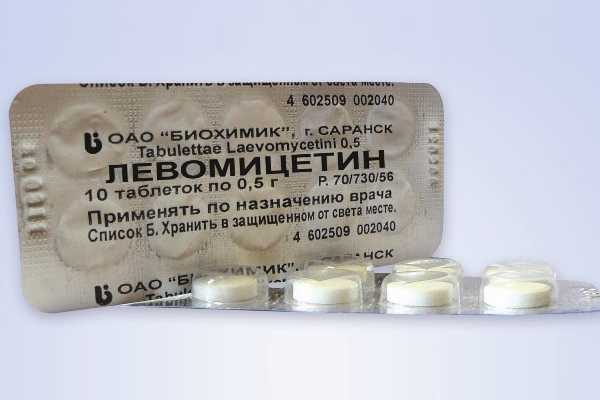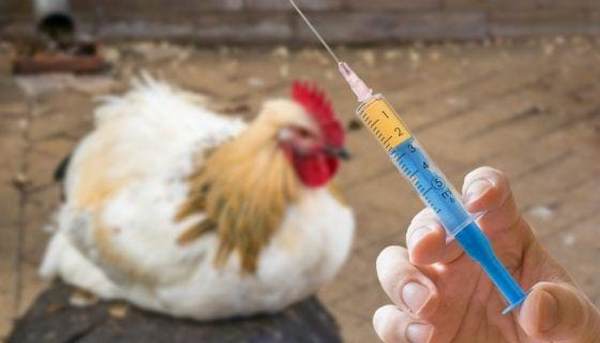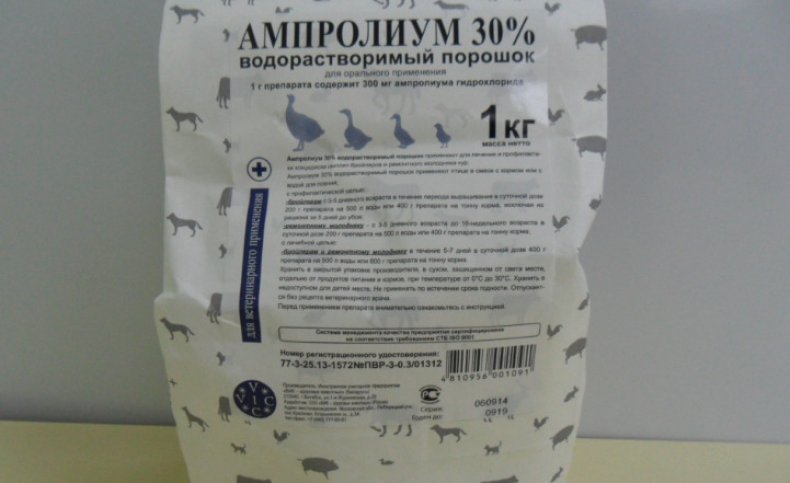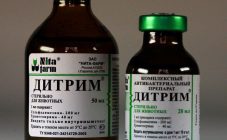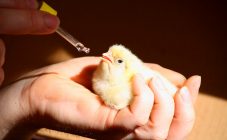Content:
Chickens and chickens are regularly fed with antibiotics to prevent the development of bacterial infections. It is believed that medications affect the quality of meat and eggs. In some cases, this is true. However, if prescribed correctly, the drugs do not harm and allow you to save the livestock.
The drug chloramphenicol: when, to whom and for what it should be given
Chickens are very vulnerable and susceptible to diseases. Professional breeders who breed them always have a first-aid kit. It consists of medicines designed to combat various ailments.
Some farmers prefer to treat chickens with folk remedies. However, such methods are ineffective for many types of infections. When raising birds, it is almost impossible to do without antibiotics.
One of the remedies recognized as the most effective in the treatment of chickens is chloramphenicol. This synthetic antibiotic has a broad spectrum of action. Indicated in the presence of the following diseases:
- infections of the genitourinary and respiratory systems;
- colibacillosis;
- salmonellosis;
- gastroenteritis;
- meningitis.
Levomycetin for chickens acts as a preventive and therapeutic agent. The drug is given to chicks of both broiler breeds and layers to prevent infection and strengthen the immune system. Without the use of medicines, the survival rate of chicks is sharply reduced. When fighting diseases, the antibiotic is more effective as part of a comprehensive treatment. It does not conflict with other drugs and does not reduce their productivity.
Breeders alternately solder chickens with vitamin complexes and chloramphenicol at short intervals. For adult birds, medicine is given when the characteristic symptoms appear:
- lethargy;
- lack of appetite;
- liquid feces with mucus and blood inclusions;
- discharge of white liquid from the beak;
- unpleasant odor when you exhale;
- shortness of breath with gurgling or screaming;
- a change in the litter color to green, white, blue, or the appearance of foam.
An important role is played by the diet of chickens and the conditions of their maintenance. It has been proven that the likelihood of a successful outcome in case of infection is 70% higher if they receive the necessary vitamins and quality feed.
Of particular danger are diseases such as:
- Newcastle disease, or Asiatic plague;
- Marek's disease;
- bird flu.
Typical symptoms are discoloration of the scallop and earrings, paresis, paralysis, goiter edema, decreased egg production, exhaustion.
These ailments have been known for a long time, but effective treatment methods have not yet been found. If these diseases are diagnosed, all birds are destroyed.
Description and characteristics of the drug
Levomycetin is used to treat both humans and birds. The main active ingredient - chloramphenicol - effectively fights against several groups of pathogenic microorganisms:
- gram-positive, in particular, staphylococci and streptococci;
- gram-negative - Escherichia coli, Salmonella, Shigella, Spirochetes, Klebsiella.
Levomycetin destroys bacteria that are immune to the effects of streptomycins, penicillins and sulfonamides. The formation of resistance to chloramphenicol is extremely slow, so the drug does not lose its effectiveness. However, it is weakly active against certain microorganisms - acid-fast bacteria, Pseudomonas aeruginosa and clostridia. It has no effect on viruses and fungi.
Levomycetin is rapidly absorbed by the body: it penetrates into the blood and cerebrospinal fluid, is distributed in the tissues of internal organs. It has 80% bioavailability. This means that such an amount of the drug reaches the site of its action.
As a result of the application, protein synthesis of bacteria is disrupted. Decay products are excreted in urine and bile. The period during which the concentration of chloramphenicol in the body is reduced by 50% (half-life) is 1.5-3.5 hours. Complete cleansing occurs in about a week.
The appearance of chloramphenicol is white or yellowish scored tablets, flat or biconvex. Available in a dosage of 250 mg or 500 mg. They have a very bitter taste and have no characteristic odor. They dissolve poorly in water. Levomycetin for animals is packed in plastic jars of 50 or 500 pieces. In veterinary pharmacies, you can find preparations in powder form.
An instruction is attached to the medication, which indicates the doses, indications and method of administration for various types of animals. There is also chloramphenicol ointment and emulsion on sale.
Levomycetin: how much and how to give
The dosage of chloramphenicol for adult chickens is calculated in accordance with the weight: 30 mg for layers and 50 mg for broilers per 1 kg of live weight. The drug is given 3 times a day. Duration - no more than 7 days. When symptoms disappear, treatment is stopped. If the disease progresses, then the course is repeated after 3-4 days. It is forbidden to continue taking chloramphenicol for more than 2 weeks.
Before you start giving chloramphenicol to broilers, you should make sure that they do not have kidney and liver problems. Otherwise, the likelihood of deterioration is high. It is better to call a veterinarian who can accurately diagnose the disease.
Levomycetin has a bitter taste. If diluted in water, chickens will refuse to drink. For adults, medicines are mixed into food. In extreme cases, the drug is injected by force using a syringe.
Levomycetin is effective on fish oil - 300 mg of the drug per 100 ml. The medicine is mixed with feed at a dose of 30 mg per 1 kg, respectively.
Levomycetin for chickens is needed for the prevention of diseases. It is given from birth after taking vitamin supplements. The probability of infection of chicks is highest in the first, fifth, eighth five days of life. At this time, they must be given antibiotics to drink.
Chloramphenicol is also important for broilers, as it is a fast growing breed that is susceptible to disease. However, the drug should not be given immediately before slaughter. It takes some time for the drug to be completely excreted from the body. This takes about 7 days. The carcasses of birds, which for some reason had to be slaughtered earlier, are allowed to feed for domestic animals or used for the production of bone meal.
How much chloramphenicol should be given for chickens per liter of water? For babies, the medicine is diluted in a proportion of 5-10 mg per 1 liter. The tablets are pounded and stirred until completely dissolved. The liquid is injected into each chick through a pipette or syringe without a needle.So that the chicks do not resist, they are carefully but firmly held by the beak.
Some chickens have an individual intolerance to the active substance chloramphenicol. In this case, as well as in case of an overdose, the following consequences occur:
- vomiting;
- diarrhea;
- inflammation of the mouth and throat;
- bloating;
- inflammatory skin lesions.
Tips and tricks from experienced poultry farmers
In the prevention and treatment of chicken diseases, experienced breeders recommend following these guidelines:
- Antibiotics for chickens alternate with vitamins. The scheme is as follows: they are soldered with medications, take a week break, give vitamins, skip 3 days, re-inject the medicine.
- Do not solder antibiotics on newborn chickens. They have not yet formed their own microflora. They are given vitamins first. The use of medications leads to disruption of the gastrointestinal tract and the appearance of more serious health problems. Preventive reception should last no more than 3-4 days.
- If the farmer cannot accurately diagnose the disease, an urgent need to consult a specialist. Self-medication in this case is extremely dangerous and can lead to the death of the livestock.
- To make the body clear of drugs faster, chickens are given fermented milk products - cottage cheese or fermented baked milk. The diet includes special additives that restore the intestinal microflora.
- Chickens should be checked regularly. They are in close contact with each other, so the infection can spread quickly. An untimely detected disease will cover the entire house within a few days.
The use of chloramphenicol for chickens is a necessary measure to protect them from diseases. If you follow the rules, then drugs will not do harm. It is necessary to solder the birds with medicines if there are appropriate symptoms. To avoid negative consequences, you should not refuse to consult a veterinarian.

